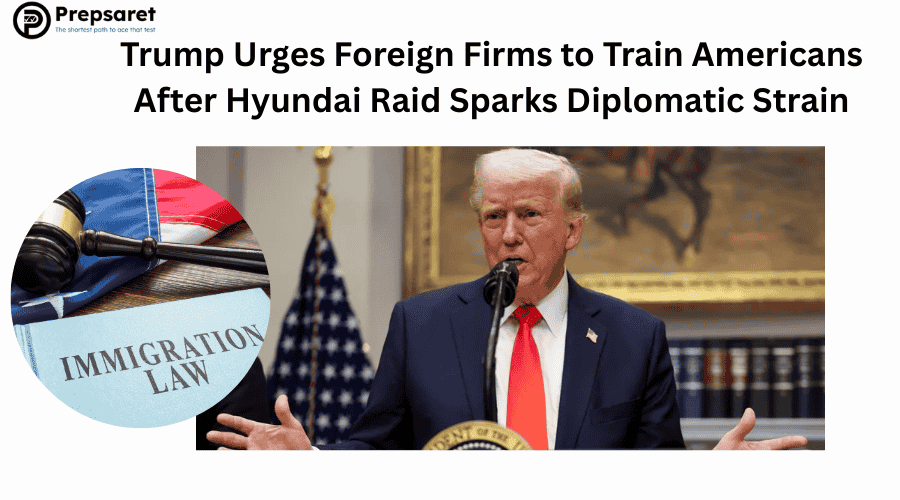Key Points:
- President Trump responds to a large-scale ICE raid at a Hyundai-LG EV plant by urging foreign investors to comply with U.S. immigration laws and train American workers.
- South Korea arranges for the repatriation of roughly 300 detained workers as diplomatic tensions rise.
- The incident raises concerns about how immigration enforcement impacts multinational investments and workforce strategies.
Trump Calls for Legal Hiring and Workforce Development
Following an immigration raid at Hyundai’s battery plant in Ellabell, Georgia, President Donald Trump emphasized that while foreign investment is welcomed, it must operate within U.S. immigration laws. Posting on Truth Social, Trump stated, “Your investments are welcome … we will make it quickly and legally possible for you to do so. What we ask in return is that you hire and train American Workers.”
He further proposed allowing skilled foreign experts entry—within legal channels—to train domestic workers, acknowledging the current U.S. skills gap. Trump downplayed any diplomatic fallout, affirming that U.S. relations with South Korea remain strong.
Diplomatic Fallout and South Korea’s Response
The raid, one of the largest workplace immigration enforcement actions under the Department of Homeland Security, led to 475 arrests—about 300 of them South Korean nationals. Most detainees were subcontractors, not direct employees of Hyundai or LG Energy Solution.
Seoul quickly moved to secure the release of its citizens. It arranged a charter flight for repatriation and is negotiating with U.S. officials ahead of South Korean Foreign Minister Cho Hyun’s visit to Washington.
The operation triggered diplomatic unease, as South Korean authorities expressed regret over the lack of prior notice and concern over how the arrests were conducted—especially footage showing detainees handcuffed and restrained.
The raid has also cast uncertainty over a $7.6 billion joint venture by Hyundai and LG in Georgia, a project intended to strengthen U.S. clean energy and manufacturing. Analysts now warn that strict immigration enforcement, though aimed at worker protection, may chill future foreign investment. Industries sector-wide—including semiconductors, EVs, and tech—now face pressure to balance talent sourcing, legal compliance, and workforce development.

